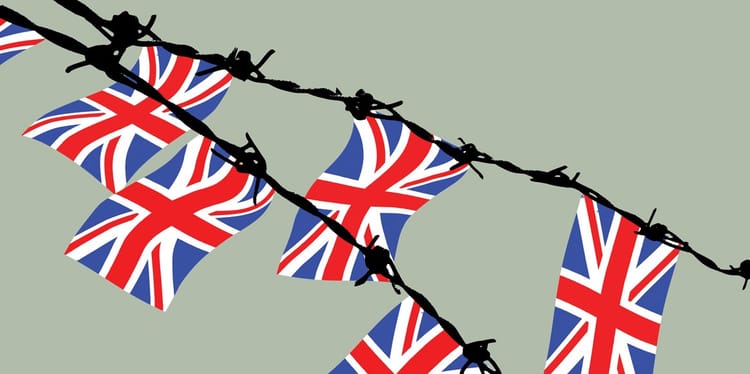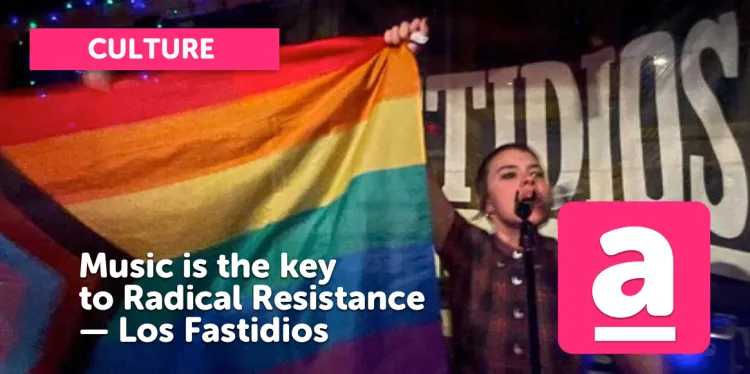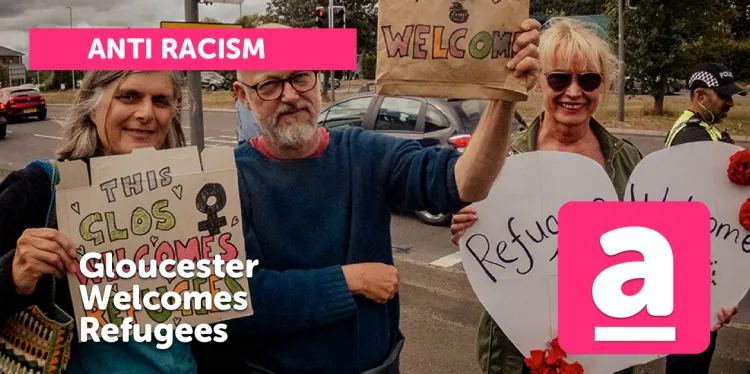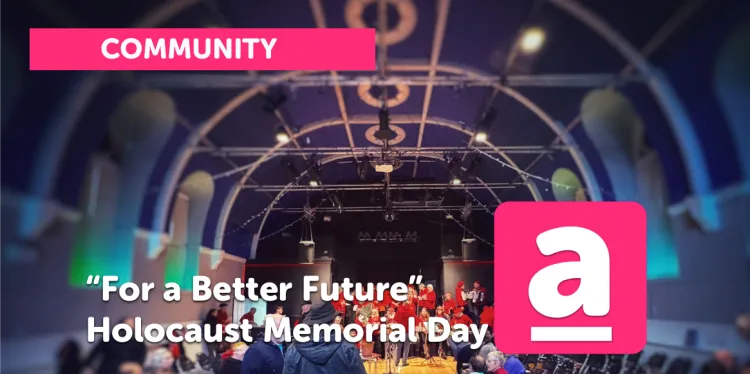Black Lives Matter: What comes next?

By Jamie O’Dell
Photo credit: Patrick Partridge
After so much noise and so much action in and around the Stroud Black Lives Matter demonstrations, there is the temptation to think now that real progress has finally been made.
But what has actually changed within Stroud and those of us seeking or claiming to be anti-racists?
After the protests ITV West Country, BBC Points West and BBC Radio Gloucestershire all ran pieces on the Anti-Slavery Memorial Arch in Paganhill off the back of our article published in May, which examined Stroud’s links to the Transatlantic slave trade.
But the news cycle is fleeting and more often than not these pieces were taken as a comforting ballast to counterbalance the grim legacy of historical figures and institutions who profited so greatly from the systematic exploitation of Black bodies, such as Edward Colston.
So now the multi-racial coalitions of people have marched, what actions have we taken as individuals and as a collective? What knowledge have we internalised about how racism works on a local, national and international level? From this, what changes are we making in our lives with our power?
To not seriously ask these questions risks much of the noise amounting to empty tokenism and performativity, rather than genuine and enduring allyship and anti-racist work. Social media can be a really beneficial tool for collective education and movements, but this is only where the change can begin, not where it ends.
So we decided to examine three concepts to examine how understanding these can help us work towards an anti-racist future; Abolition, Decolonisation, and Reparations.
The meaning of the word abolition has shifted radically in the last few months. For most, myself included, the word ‘abolition’ was and is still synonymous with the outlawing of slavery in most British colonies in 1833; the whitewashed and highly problematic history and remembrance of this being the subject of our initial article.
Abolition, however, does not mean the ending, or absence, of a practice, it’s the reimagining and building of something fundamentally new. This is where the efforts of the right-wing establishment to force an argument about ‘cancel culture’ only serve as attempts to delegitimize anti-racism and maintain racist hierarchies and systems. Anti-racism has never been about just sniffing out and ‘cancelling’ racists (who only ever seem to gain Telegraph columns and ‘I’m the real victim’ stickers from their use of racism) but about abolishing racist systems and structures.
Through this new meaning of abolition we can see why the arch and our celebration of the ‘abolition’ of slavery is a fallacy. The economic system built upon the exploitation of the enslaved, capitalism, was never abolished and it continues now as a globally dominant economic system, feeding off the inequality that racism enshrines. This is why Ibram Kendi calls slavery and capitalism the ‘conjoined twins’.
Take the example of John and George Rudge, who were brought to our attention by Joe Mulhern in the wake of our original article. The Rudge cousins were Englishmen from Stroud who made their money from the slave trade in Brazil, the last ‘Western’ country to ‘abolish’ slavery in 1888, decades after British ‘abolition’. John Rudge owned plantations around Rio and São Paulo, while George was implicated in the slave trade in Rio.
It is these discussions that we have been breaking out between local people online. For instance, about the political rationale of combining anti-racism with anti-capitalism (anti-capitalism not just being about opposition to inequality but also the practical building of alternative systems within which humans can flourish). Put simply, you can’t address one without the other and we can see the green shoots of abolitionist and anti-capitalist sentiment starting to take hold.
Similarly to abolition, how we think about the world was never radically reimagined after 1833 or even after the British Empire went through the process of formal decolonisation in the decades after World War 2. To quote Dr Sabelo Ndlovu-Gatsheni: “The postcolonial is yet to be born. This is because colonialism, if it was ever buried, it was buried alive.” If we are prepared to take a long hard look at ourselves and the systems in which we live, therefore, we must ensure that now is the time that these discussions are finally unearthed.
Thus, ‘decolonisation’ takes on a new meaning, one where it does not just mean a former colony gaining independence but removing the ways in which individuals and institutions see and act in the world which are shaped directly by mentalities and systems developed in the ‘colonial’ era.
This is why people discuss decolonising the curriculum, for example. On a personal level I can remember learning about Empire day and the industrial revolution but never fully examining the true face and history of the British Empire; or the engines of the industrial revolution situated thousands of miles away from Britain itself. This isn’t to put the blame on teachers, I always count myself incredibly lucky with the quality of history teachers I had, but on the curriculum that’s set and the resources we have to teach it.
Add into this our cultural institutions, what story and whose voices they are presenting, the ways our government and politics operates, and the Comic Relief fundraising drives that are so often kid’s only engagement with ‘Africa’, and you can start to see how much we have to dig up.
Another concept beginning to break into wider discussion has been reparations. Reparations here refers to the bill for centuries of unpaid labour that, to be blunt, the ‘West’ and the system of global capitalism that we see today is built upon. Indeed, the defenders of the Colston Statue themselves continually point to how he poured his profits from the slave trade into the city of Bristol.
Estimates of what this financial settlement would look like reach tens of trillions of dollars, without any way to further measure the human cost of the violence and abuse that continues to this day. This comes in direct contrast to the compensation paid to the slave owners for their loss of ‘property’ by the British government, the interest on which was only paid off in 2015.
A simple transfer of these trillions is logistically and realistically not feasible, but this is not to say the same about the concept of reparations. What is critical is the recognition of this deliberate injustice, and the extent to which the inequalities we see on all levels today are a result of the systems that everyone still lives within. Such as the unequal impacts of the climate crisis.
This is also not to engage with race as a singular issue. Capitalism has many pillars, race, class, and patriarchy to name but a few. Thus, the intersections of these other factors have to be taken into account. Many of the factors that caused People of Colour to die so disproportionately from Covid-19, for instance, demonstrates class and race inequalities working in tandem.
Black Lives Matter as a statement, as a demand, is the bare minimum. It’s indicative of where we are that even this remains controversial. If we can fundamentally change how we think about ourselves and the world around us, however, then there is hope that real progress can follow.
So as the country’s attention shifts to the loosening of lockdown and the ominous potential of a second wave, we must not lose sight of this opportunity for actual change and the ideas we must equip ourselves with to realise this.






Member discussion